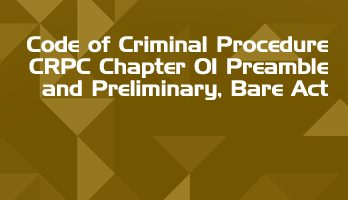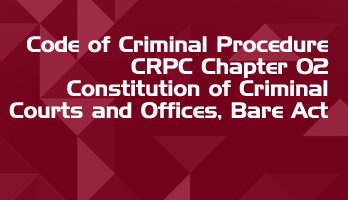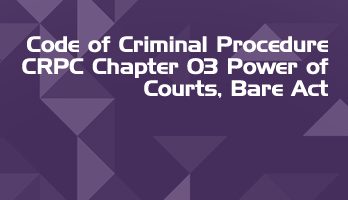A 'Bare act' is the actual legislation passed by the Parliament of India. Generally, an act sets out the high level legal and policy principles applicable to the subject matter of the law.
Most acts are accompanied by 'subsidiary legislation' such as rules, regulations, notifications and orders; which address the actual implementation detail of the act.
Free Full Course Available on LawMint's YouTube Channel
How to Land Your Dream LLB Internship in a Top Law Firm
- Part 1 - Introduction
- Part 2 - Internship Planning
- Part 3 - Internship Research
- Part 4 - Building Your Profile
- Part 5 - The Email
- Part 6 - The Resume
- Part 7 - The Cover Letter
- Part 8 - The Interview
- Part 9 - Self Development
Practical and comprehensive course, with real examples and step-by-step analysis of the complete internship application process. Check out LawMint's YouTube channel now!
Hindu Marriage Act, 1955
Preamble
An act to amend and codify the law relating to marriage among Hindus. Be it enacted by Parliament in the Sixth Year of the Republic of India as follows –
Chapter I – Preliminary
Section 1 – Short title and extent
- This Act may be called the Hindu Marriage Act, 1955.
- It extends to the whole of India except the State of Jammu and Kashmir, and applies also to Hindus domiciled in the territories to which this Act extends who are outside the said territories.
Section 2 – Application of Act
- This Act applies –
- to any person who is a Hindu by religion in any of its forms or developments, including a Vira Shaiva, a Lingayat or a follower of the Brahmo, Prathama or Arya Samaj
- to any person who is a Buddhist, Jaina or Sikh by religion, and
- to any other person domiciled in the territories to which this Act extends who is not a Muslim, Christian, Parsi or Jew by religion, unless it is proved that any such person would not have been governed by the Hindu law or by any custom or usage as part of that law in respect of any of the matters dealt with herein if this Act had not been passed.
- Notwithstanding anything contained in sub – section (1), nothing contained in this Act shall apply to the members of any Scheduled tribe within the meaning of clause (25) of article 366 of the Constitution unless the Central Government, by notification in the Official Gazette, otherwise directs.
- The expression Hindu in any portion of this Act shall be construed as if it included a person who, though not a Hindu by religion, is, nevertheless, a person to whom this Act applies by virtue of the provisions contained in this section.
Explanations
The following persons are Hindus, Buddhists, Jainas or Sikhs by religion, as the case may be:
- any child, legitimate or illegitimate, both of whose parents are Hindus, Buddhists, Jainas or Sikhs by religion;
- any child, legitimate or illegitimate, one of whose parents is a Hindu, Buddhist, Jaina or Sikh by religion and who is brought up as a member of the tribe, community, group or family to which such parent belongs or belonged; and
- any person who is a convert or re – convert to the Hindu, Buddhist, Jaina or Sikh religion.
Section 3 – Definitions
In this Act, unless the context otherwise requires,
- the expressions “custom” and “usage” signify any rule which, having been continuously and uniformly observed for a long time, has obtained the force of law among Hindus in any local area, tribe, community, group or family: Provided that the rule is certain and not unreasonable or opposed to public policy; and Provided further that in the case of a rule applicable only to a family it has not been discontinued by the family;
- “district court” means, in any area for which there is a city civil court, that court, and in any other area the principal civil court of original jurisdiction, and includes any other civil court which may be specified by the State Government, by notification in the Official Gazette, as having jurisdiction in respect of the matters dealt with in this Act;
- “full blood” and “half – blood” two persons are said to be related to each other by full blood when they are descended from a common ancestor but by different husbands;
- “uterine blood’ – two persons are said to be related to each other by uterine blood when they are descended from a common ancestress but by different husbands;
- “prescribed” means prescribed by rules made under this Act;
- –
- “sapinda relationship” with reference to any person extends as far as the third generation (inclusive) in the line of ascent through the mother, and the fifth (inclusive) in the line of ascent through the father, the line being traced upwards in each case from the person concerned, who is to be counted as the first generation;
- two persons are said to be “sapindas” of each other if one is a lineal ascendant of the other within the limits of sapinda relationship, or if they have a common lineal ascendant who is within the limits of sapinda relationship with reference to each of them;
- “degrees of prohibited relationship” two persons are said to be within the “degrees of prohibited relationship”
- if one is a lineal ascendant of the other; or
- if one was the wife or husband of a lineal ascendant or descendant of the other ; or
- if one was the wife of the brother or of the father’s or mother’s brother or of the grandfather’s or grandmother’s brother of the other; or
- if the two are brother and sister, uncle and niece, aunt and nephew, or children of brother and sister or of two brothers or of two sisters;
Explanations
In clauses (c) and (d), “ancestor” includes the father and “ancestress” the mother;
For the purposes of clauses (f) and (g), relationship includes
- relationship by half or uterine blood as well as by full blood;
- illegitimate blood relationship as well as legitimate;
- relationship by adoption as well as by blood; and all terms of relationship in those clauses shall be construed accordingly.
Section 4 – Over – riding effect of Act
Save as otherwise expressly provided in this Act,
- any text rule or interpretation of Hindu law or any custom or usage as part of that law in force immediately before the commencement of this Act shall cease to have effect with respect to any matter for which provision is made in this Act;
- any other law in force immediately before the commencement of this Act shall cease to have effect in so far as it is inconsistent with any of the provisions contained in this Act.
Important Central Acts in Regional Languages
Legislative department website also features regional language versions of several important Central Acts.
Free Full Course Available on LawMint's YouTube Channel
How to Land Your Dream LLB Internship in a Top Law Firm
- Part 1 - Introduction
- Part 2 - Internship Planning
- Part 3 - Internship Research
- Part 4 - Building Your Profile
- Part 5 - The Email
- Part 6 - The Resume
- Part 7 - The Cover Letter
- Part 8 - The Interview
- Part 9 - Self Development
Practical and comprehensive course, with real examples and step-by-step analysis of the complete internship application process. Check out LawMint's YouTube channel now!












